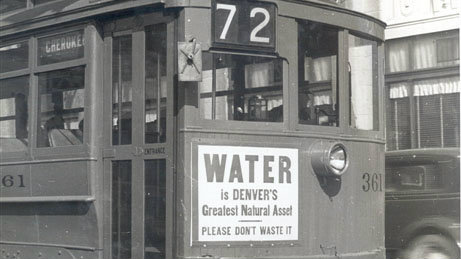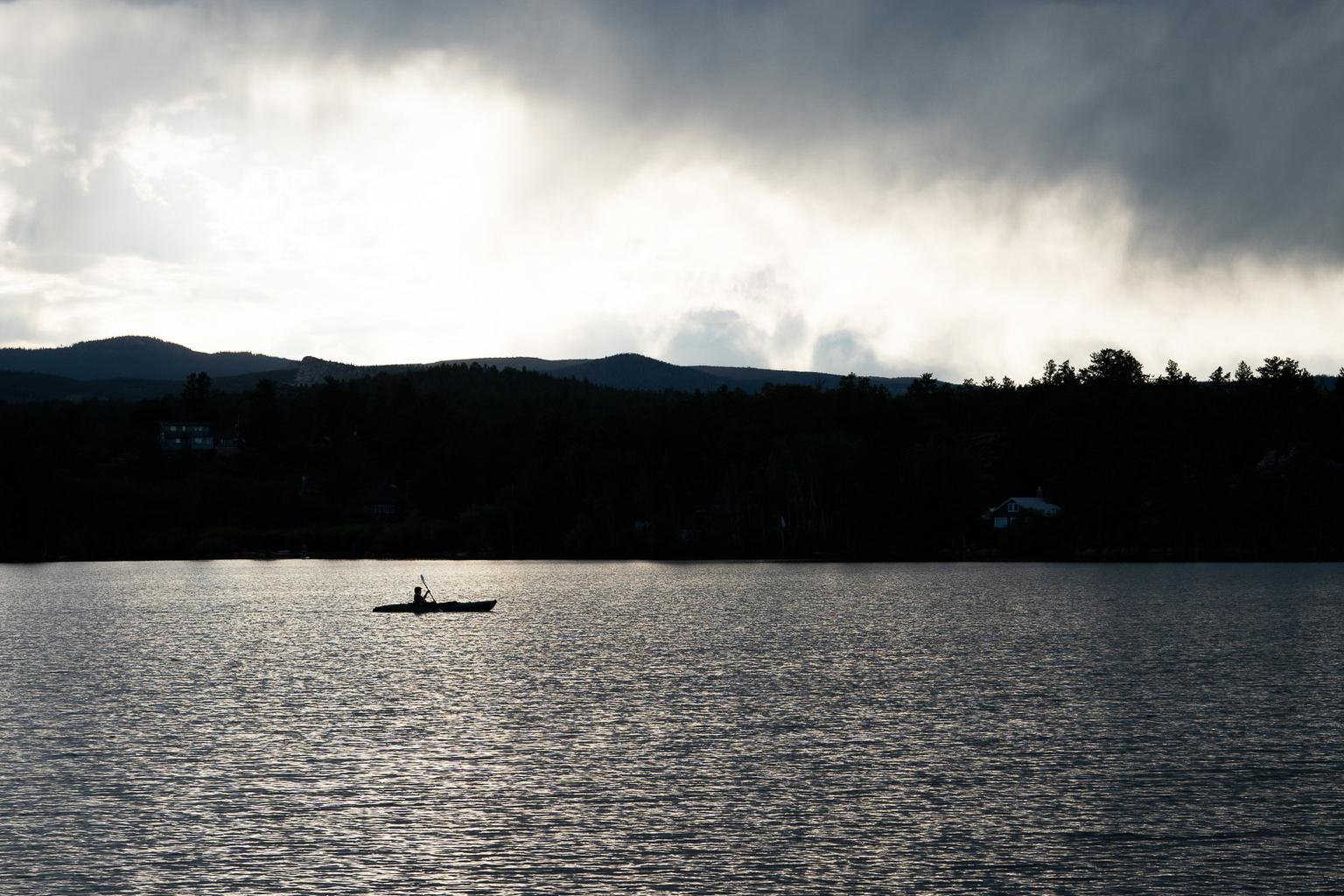

Even in the face of climate change and a growing population, Colorado can have enough water in the future. That's according to three water managers from around the state. But abundance won't happen by accident; the state will have to steward the water it has and plan its growth smartly.
Jim Lochhead, CEO of Denver Water; Eric Hecox, executive director of the South Metro Water Supply Authority; and Eric Kuhn, general manager of the Colorado River District in Glenwood Springs spoke with Colorado Matters host Ryan Warner. They talked about the second draft of the state's first water plan, which is available now. It will be finalized in December.
If management of Colorado's water resources goes unchanged, the state is projected to face a gap of hundreds of thousands of acre feet of water. One acre foot provides enough water for three families of four, on average, for a year. The state demographer expects Colorado's population to double by 2050, which is accounted for in the projection.
But the gap doesn't have to become reality, according to the three.
"We have enough water in the system -- even if climate change reduces our supplies -- but we have to use it in a much smarter way," Kuhn said.
Jim Lochhead on the "action plan" included in the water plan's second draft
"At this point I would characterize it as a compendium of ideas. It doesn't set out priorities, it doesn't set out timelines, it doesn't set who will do what by when... For example, right now the plan speaks to municipalities saving 400,000 acre feet of water. I think that we need a statewide water efficiency goal that applies across the state, across all sectors. Whether it's agriculture, industry or municipalities, we all need to be sharing in achieving greater efficiency. Right now it's simply targeted at municipalities."
Eric Kuhn on "the big issue" on the Colorado River
"Every drop of water today is used. Except for manmade exports of water that was saved in Mexico due to the accident of an earthquake, no water has gotten to the gulf of Baja California since 1999. So, if a city is going to use new water supplies from the Colorado River, somebody else in the Colorado River system is going to use less...
[But] look at some of the success stories in the Colorado River Basin. Las Vegas is serving 2.1 million today with two thirds of the water that they were using 10 years ago and serving 500,000 or 600,000 people less...
We have enough water in the system, even if climate change reduces our supplies. But we have to use it in a much smarter way."
Eric Hecox on what South Metro communities have done to reduce water use
"We have historically had an over-reliance on non-renewable groundwater, which is essentially groundwater in wells. Our access to that water supply has been diminishing... for all intents and purposes, they're drying up.
"[Out of necessity], our members have reduced collectively in the area water use by about 30 percent... We have two members, that are two of only a few in the state, that put individual customers on water budgets. We have a number of members that are paying current customers to transform their outdoor landscaping. We have members that are really pushing the boundaries of what they can do with new development, and giving significant incentives to new developers to put in place development that uses less water. In addition to that our members, for all intents and purposes, are reusing their supplies."









